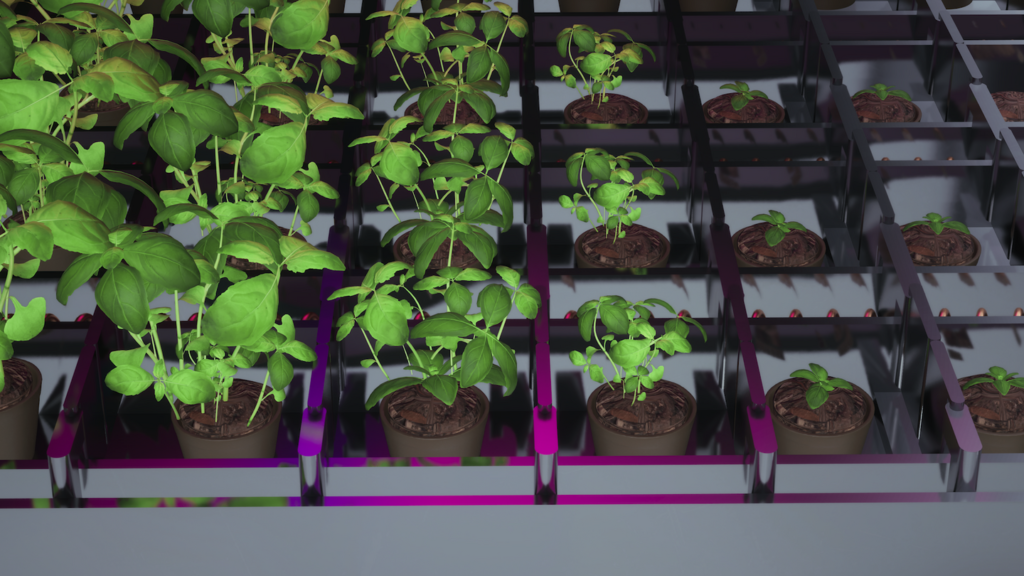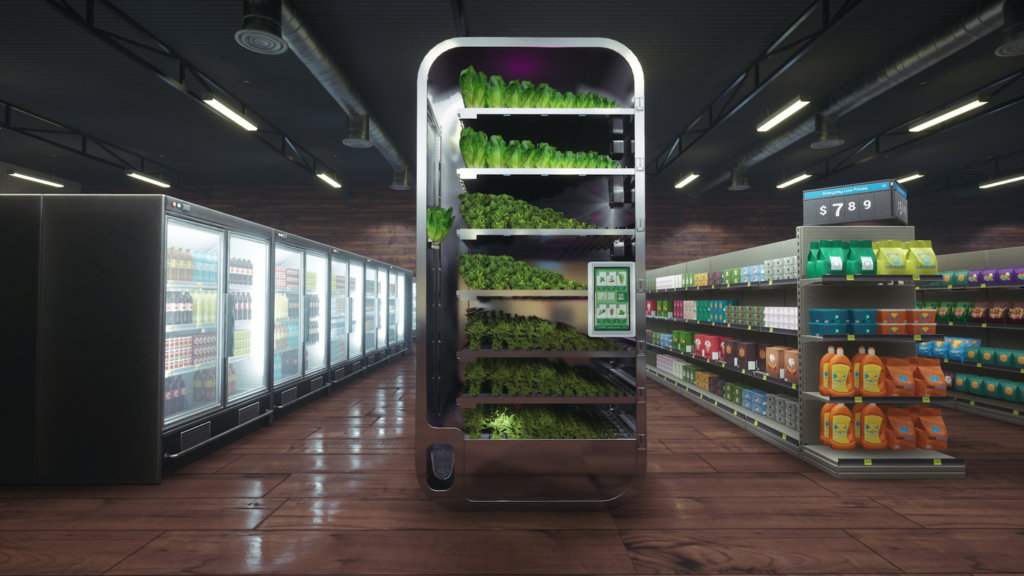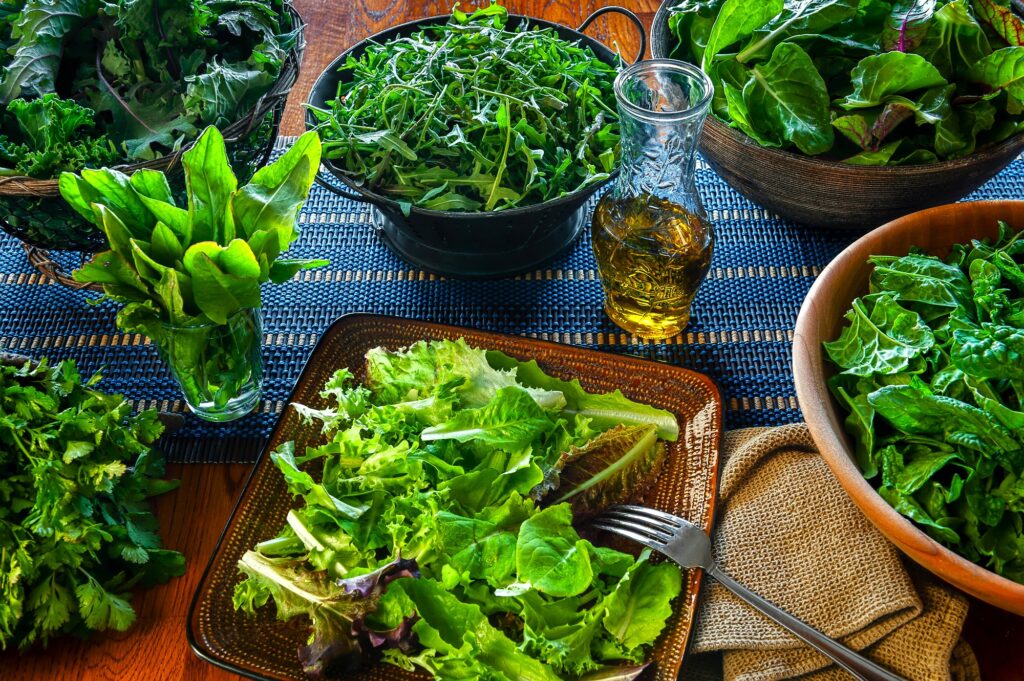Imagine if getting your daily dose of fresh vegetables was as easy as grabbing a snack or a drink from a vending machine.
One Israeli startup is working on making that a reality, developing a specialized vending machine that grows a variety of high-quality, nutritious leafy greens inside it, and in less time than it takes in a field.
The vending machines created by replantin’ grow individual plants inside them, each placed as a seed within a proprietary pod about the size of a coffee capsule, which provides all the nutrients it needs to grow.
The vending machine, called the Produce Integrated Cultivation Instrument (PICI), contains multiple shelves, each holding a different type of vegetable, allowing for the varying conditions the plants need to grow.
“Once [the seed] has sprouted, the climate and other conditions change gradually and the shelf will automatically enter into the different stages of growing,” replantin’ founder and CEO Guy Elitzur tells NoCamels.
The first-of-its-kind machine also has an irrigation system that automatically pumps water in and out of the bottom of each shelf several times a day – constantly supplying the plants with just the right amount of water they need, according to species.

An AI-powered camera monitors the growth of each plant, verifying its readiness for consumption and then allowing it to be dispensed by the vending machine.
“It’s like a small factory that grows and supplies the produce,” Elitzur says.
The company plans to place the vending machines in supermarkets and restaurants. An app accompanying the PICI allows these shops and eateries to monitor the growth of the plants and also to order fresh capsules when needed.
replantin’ was created in early 2023, after Elitzur, a serial entrepreneur with extensive agricultural experience, realized that the leafy greens grown worldwide, many of which wither quickly, needed to travel far distances to get to market – a costly process that does not always ensure that the vegetables arrive in peak freshness.
“These types of crops need to be kept in the refrigerator and have a short life, which is an issue,” Elitzur says, explaining that around 60 percent of lettuces are lost during the move from farm to shop.
He hopes that the vending machine will create an alternative to the current supply chain for restaurants and supermarkets, creating a more cost-effective solution that will reduce food waste as the produce is grown and sold in the entirely same location.
Sign up for our free weekly newsletter
SubscribeThe PICI is also an answer to the expensive cost of labor involved in agriculture by automating the process, Elitzur explains. Furthermore, because replantin’ is selling the seeds inside capsules and not fully grown plants, it reduces the price of shipping, makes storage easier and avoids the challenge of ensuring that the produce remains fresh.
replantin’ is currently focusing on leafy greens and herbs as they have a shorter growth period compared to other vegetables.
Elitzur points out that the vegetables in the PICI do not undergo any genetic modification at all and that the ecosystem created within the vending machine means that there is no need for pesticides.

“Part of not using pesticides is the ability to grow with no contamination [and] to create a microclimate around the plant that does not develop any bacterial disease or other humidity-related conditions,” he explains.
He says that the machines also have another major advantage – a far shorter growth period for vegetables. From seeding to harvest takes between 18 to 21 days, he says, as compared to a lettuce in the field that can take four to six weeks to grow.
replantin’ is currently conducting trials ahead of releasing the PICI on the market. At present, the company is funded by Elitzur and his team but they hope to bring in investors as they develop the product.
Elitzur believes that increasing urbanization, climate change and a growing global population have made current farming methods unsustainable – and the PICI is one answer to these pressing problems.
“The food supply chain – from seed all the way to harvest – has to be changed,” says Elitzur.
As such, he believes that the PICI will ultimately free up farmers to use their fields for more urgently needed vegetables, and will also help agriculturalists adopt more efficient farming methods such as vertical farming.
“We truly believe that vertical farming is part of the solution and that we are trying to be part of this,” says Elitzur. “The sky’s the limit.”
Related posts

Harnessing Our Own Bodies For Side Effect-Free Weight Loss

Israeli Device Is New, Drug-Free Solution For Men Coping With ED





Facebook comments